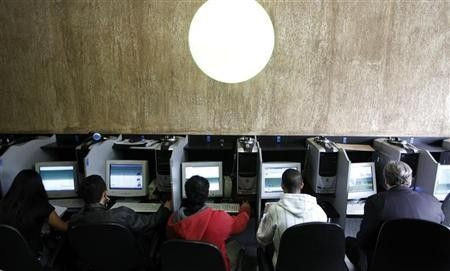Russia, Saudi Arabia, China And Others Fail To Impose Internet Regulations At WCIT

Russia, Saudi Arabia, China, Sudan, Egypt, Algeria and the UAE debated the U.S. and its allies over just how open the World Wide Web should be at a conference that met in Dubai this week to lay down a controversial blueprint for global Internet regulatory rules.
The meeting, called the World Conference on International Telecommunications 2012, or WCIT-12, kicked off this month in Dubai, the biggest city in the United Arab Emirates. It began on Dec. 3 and is scheduled to conclude on Friday.
The WCIT is a UN conference whose goal is to renegotiate a treaty on International Telecommunication Regulations, or ITRs, which were last updated in 1988. Communication technologies have made great strides over the past 24 years, so WCIT attendees hope the new agreement will reflect recent developments and allow for free communication across borders in the new digital age.
But some countries are more interested in enforcing tighter regulations than promoting the free exchange of ideas. A group of nations -- many of which have reputations for clamping down on dissent -- have floated the idea of allowing greater domestic control over Internet access.
Russia, Saudi Arabia, China, Sudan, Egypt, Algeria and the UAE put forth a proposal on Friday that would give less control of Internet governance to private organizations, like the U.S.-based Internet Corporation for Assigned Names and Numbers, or ICANN -- and give greater power to national governments.
The United States and its allies at the conference took a stand against the idea, led by Ambassador Terry Kramer, who heads the United States' delegation to WCIT. On Monday, it was confirmed that the proposal was never admitted for formal consideration.
“We were surprised and disappointed, candidly, about what was included [in that proposal],” Kramer said in a WCIT interview. “It creates an open door for review of content and potential censorship there; it will create a chilling environment for the Internet.”
Though the proposal was ultimately discarded, it raised concerns about Internet freedom around the world -- especially considering the role the Internet has played in anti-government activism in Russia, China and across the Arab world in recent months.
But as long as countries continue to engage in open collaboration regarding the role of the Internet in an increasingly interconnected planet, there is room for optimism about the future of telecommunications.
“What we want to achieve here is continued success of the telecom and Internet sectors,” explains Kramer. “More than anything else, this will be our legacy in terms of opening up access to information to societies, creating economic growth, et cetera. And that to us should be the anchor point of all the work that we’re doing."
© Copyright IBTimes 2024. All rights reserved.






















